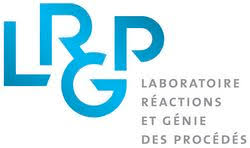


Summary: Membrane processes are, together with cryogeny, absorption and adsorption, a key technology for gas separation applications. For simulation purposes, a constant membrane permeability hypothesis is most often assumed for each gas compound, for sake of simplicity.
A dedicated computer software (MEMSIC) including multicomponent mixtures computations and extendable to Process System Engineering (PSE) software through a CAPE OPEN tool has been developed. The modelling approach offers, for the first time, a rigorous computation of transmembrane fluxes based on different solution-diffusion models (dual mode, Flory Huggins, ENSIC) for a set of absolute upstream and downstream pressure. This strategy differs from a classical flux expression, based on the dependency of permeability either upon upstream pressure or transmembrane pressure, which has been proposed up to now but can generate computational errors.
Four different types of hydrodynamic conditions are taken into account: (1) cross plug flow, (2) perfect mixing, (3) co-current and (4) counter-current flow. Additionally, four different concepts and/ or theoretical model are proposed to describe the transport mechanism of molecular species through the membrane: (1) constant permeability, (2) Dual Mode, (3) Flory-Huggins and (4) ENSIC. Moreover, the program allows the user to take into account both the pressure drop and the Joule-Thomson effect. Two versions of MEMSIC have been developed. One is a standalone version through an Excel Add-in and another is a CAPE-OPEN compliant simulation module. CAPE-OPEN is a freely available interoperability standard for CAPE (Computer-Aided Process Engineering) software tools. Most process simulation software tools (PME: Process Modelling Environments as Aspen Plus®, Aspen HYSYS®, PRO/II®, ProsimPlus®, etc.) implement CAPE-OPEN interfaces that enables the end-user to plug CAPE-OPEN compliant tools and to export CAPE OPEN compliant components.
